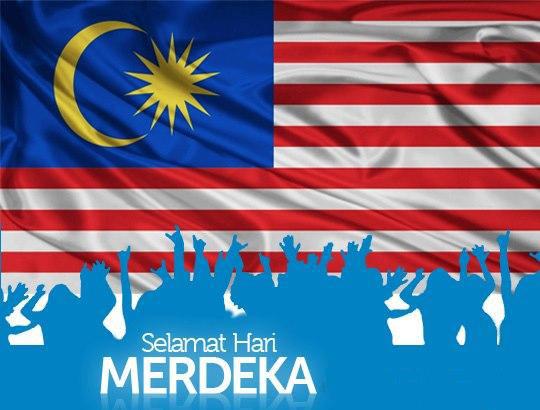16 days after the Independence Day celebration of 31st August 2016, another festivity was held to commemorate Malaysia Day, which marked the establishment of the Malaysian Federation with the joining together of Malaya, North Borneo, Singapore and Sarawak to form the nation state of Malaysia on the 16th of September 1963. This celebration was held in the oil city of Bintulu in the state of Sarawak. It is worth noting that the Malaysia Day was never recognized or celebrated by the nation until 2010 when the new generation of Malaysians demanded its recognition and the federal government finally gave in under the weight of a strong opposition. For many, especially East Malaysians, economic and political imbalance between West and East Malaysia have always been a concern. It is thus not strange that the Prime Minster, in his speech of this year’s Malaysia Day celebration, chose to boast the economic development under his tenure saying that the celebration this year is more meaningful because the various development projects, implemented under the National Transformation Programme (NTP), have yielded results.
Comment:
On the 27th of May 1961, the then Prime Minister of Malaysia, Tunku Abdul Rahman, gave a speech where he mentioned the need for the establishment of Malaysia by joining together the states of Malaya, Sabah, Sarawak and Singapore. The Cobbold Commission was established by the British in order to carry out a referendum concerning the merger in the Borneo. Similar referendum was also conducted in Singapore. Finally, the British government appointed the Landsdowne Commission to draft a constitution for Malaysia which was essentially the same as the 1957 constitution established by the Reid commission. Finally, Malaysia was officially established on the 16th of September 1963. The establishment of Malaysia was not without problems. Indonesia, a former Dutch colony initiated the Confrontation and the Philippines, until today lay claim over Sabah.
For patriotic Malaysians, the formation of Malaysia is seen as an extension of the independence from British, with which Malaysia is now ‘independent’ and ‘able to mould its own future’. However for a significant number of Malaysian subjects in Sabah and Sarawak, the celebration of Malaysia Day is meaningless, hollow and empty unless the special rights and autonomy of Sabah and Sarawak as agreed, promised and assured by the Founding Fathers of Malaysia are fulfilled. But for those whose minds and eyes are as clear as crystal, it is not difficult to see that Malaysia, although its aspiration of unity is commendable, is still formed within the framework of a nation state that manifests weakness and non-independence. Although we can’t deny that material development is evident in a nation state like Malaysia, it will never be free from the clutches of Western hegemony and dominance of the Western mindset. What we are facing now is neocolonialism – where although we are free from physical colonialism, we are in no way free from Western domination in almost all aspects of our lives, to the point that we may ask ourselves what is the value of material wealth if we are still slaves to the whims and desires of other men…
Malaysia is not unique in its situation. Since the destruction of the Uthmani Khilafah, Western powers have gone to great lengths to ensure that their model of nationhood dominates the Muslim world and today, they stand victorious. With Muslims stuck within this unfortunate framework of nationalism, they are exposed to colonialism in all its forms, in economy (through the provision of foreign debt and financial controls and so forth), politics (through secularism, democracy, human rights and so on), culture (permissiveness of the Western culture) and various other aspects of life. We also observe clashes between Muslim nation states due to difference in interests and political divide as exemplified in the Iran-Iraq war, petroleum interests between Indonesia and Malaysia, the war between Iraq and Kuwait and many others. Muslims are also so weak in the face of the enemy. Nationalism destroyed the brotherhood between Muslim nation states to such an extent that we are totally helpless and unable to face enemy attacks. We are reminded of the US invasion of Iraq – it happened without the slightest effort of Muslim nation states in stopping it. And our brothers and sisters in Palestine suffered continuously in the hands of the wretched Zionists, yet not even a single fire was shot off the guns of any of the armies of the Muslim nation states.
To some, there may be a perception of stability within the premise of the secular viewpoint in the nation states and democratic governance within the Western world, however, in the Muslim world this model faces a persistent dilemma primarily due to its incompatibility with the viewpoint of the common Muslims that Laws must be sourced from Islam. This is the uniqueness of the Muslims. Even though we are forced to live within the framework of nation states, we never lose touch of the fact that as long as we declare that Allah is the only God and Muhammad is His Messenger, we are brethren. It is this faith that keeps us alive and never in the history of our great ideology had Muslims ever give up in working towards implementing their Deen. We may be facing hardship, for now, for having been forced to live under the rule of the West, but we must never give up our hopes that Allah’s help is nigh. And we must never abandon the Call to Islam, the Call to re-establish the State of Khilafah (Caliphate) upon the method of the Prophethood where there is no authority save the authority of Allah سبحانه وتعالى.
Dr. Muhammad – Malaysia

